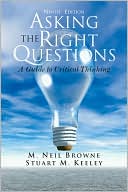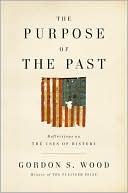Cruising Utopia: The Then and There of Queer Futurity
The LGBT agenda for too long has been dominated by pragmatic issues like same-sex marriage and gays in the military. It has been stifled by this myopic focus on the present, which is short-sighted and assimilationist.\ Cruising Utopia seeks to break the present stagnancy by cruising ahead. Drawing on the work of Ernst Bloch, José Esteban Muñoz recalls the queer past for guidance in presaging its future. He considers the work of seminal artists and writers such as Andy Warhol, LeRoi Jones,...
Search in google:
The LGBT agenda for too long has been dominated by pragmatic issues like same-sex marriage and gays in the military. It has been stifled by this myopic focus on the present, which is short-sighted and assimilationist.Cruising Utopia seeks to break the present stagnancy by cruising ahead. Drawing on the work of Ernst Bloch, José Esteban Muñoz recalls the queer past for guidance in presaging its future. He considers the work of seminal artists and writers such as Andy Warhol, LeRoi Jones, Frank O’Hara, Ray Johnson, Fred Herko, Samuel Delany, and Elizabeth Bishop, alongside contemporary performance and visual artists like Dynasty Handbag, My Barbarian, Luke Dowd, Tony Just, and Kevin McCarty in order to decipher the anticipatory illumination of art and its uncanny ability to open windows to the future.In a startling repudiation of what the LGBT movement has held dear, Muñoz contends that queerness is instead a futurity bound phenomenon, a "not yet here" that critically engages pragmatic presentism. Part manifesto, part love-letter to the past and the future, Cruising Utopia argues that the here and now are not enough and issues an urgent call for the revivification of the queer political imagination.Publishers WeeklyGay liberation's activist past and pragmatic present are merely prologue to a queer cultural future, Muñoz (Disidentifications) suggests in this critical condemnation of the political status quo. Casting his vision of a radical gay aesthetic through the prisms of literature, photography and performance, the author dismisses commonplace concerns like same-sex marriage as desires for “mere inclusion” in a “corrupt” mainstream. More defiantly, he exalts the persistence of commercial sex spaces in the face of “antisex and homphobic policings,” and celebrates the overlay of punk and queer in performance spaces. Muñoz draws on a dynamic roster of seminal artists to illustrate his vision of a utopian queer future, from the well-known (LeRoi Jones, James Schuyler and John Giorno) to edgy artists, including homo-core punk queen Vaginal Davis, club photographer Kevin McCarty and drag chanteuse Kiki (Justin Bond). Queer theorists will find the book's provocative thesis stimulating; lay readers unfamiliar with Ernst Bloch and the Frankfurt School of philosophy on which the author builds his argument may find it a slog. (Nov.)
Introduction Feeling Utopia 11 Queerness as Horizon: Utopian Hermeneutics in the Face of Gay Pragmatism 192 Ghosts of Public Sex: Utopian Longings, Queer Memories 333 The Future Is in the Present: Sexual Avant-Gardes and the Performance of Utopia 494 Gesture, Ephemera, and Queer Feeling: Approaching Kevin Aviance 655 Cruising the Toilet: LeRoi Jones/Amiri Baraka, Radical Black Traditions, and Queer Futurity 836 Stages: Queers, Punks, and the Utopian Performative 977 Utopia's Seating Chart: Ray Johnson, Jill Johnston, and Queer Intermedia as System 1158 Just Like Heaven: Queer Utopian Art and the Aesthetic Dimension 1319 A Jete Out the Window: Fred Herko's Incandescent Illumination 14710 After Jack: Queer Failure, Queer Virtuosity 169Conclusion: "Take Ecstasy with Me" 185Notes 191Bibliography 209Index 217Color illustrations follow page
\ From the Publisher\ "In this interesting study of queerness and identity politics, Munoz (performance studies, New York Univ.) invites readers to look beyond the immediate present and toward a queer future."-CHOICE,\ "As his beautiful book makes abundantly clear, Jose is on a mission to change the world, or at least to imagine (I'm quoting) 'a place and time... fuller, vaster, more sensual, brighter.'... Jose's is a book which sustains rigor even as it occasionally indulges in the anecdotal."-Barbara Browning, Social Text/Periscope,\ "In both Cruising Utopia and Disidentifications, Muñoz traces his queer theoretical genealogy through sources as varied as women-of-color feminism on the one hand, and a certain tradition of Marxian thought on the other. He cruises theory, moving seamlessly from Anzaldúa and Alarcón to Ernst Bloch, CLR James, Adorno, Derrida and Raymond Williams, those figures in leftist thought whose work is not typically mined within queer scholarship. Similarly if we trace the genealogy of what has now come to be known as queer of color and queer diasporic critique, Muñoz's work--with its insistence on the endlessly imaginative modes of being that emerge within queer, and particularly queer of color, subcultures--stands as a crucial milestone."-Gayatri Gopinath, Social Text/Periscope,\ "Cruising Utopia opens in full song, in a complex contrapuntal (Cuban?) chant, equal parts poetry and counterpolemic, in order to usher in a crowd, a choreographic mass of often queer interlocutors as likely to come from a literary (O'Hara, Schuyler, Myles) as from a critical-philosophical (beyond the Germans, and perhaps too briefly: Butler, Felman, Sedgwick) tradition, as from the worlds of art, pop, and performance. "-Ricardo Ortiz, Social Text/Periscope,\ "I love the "Public Sex" and "After Jack" chapters the best, and think the O'Hara discussion is brilliant and perfectly emblematic of the project to extract the utopian from moments of affective density that are lived. But all of the writing is astonishing, vibrant and memorable."-Lauren Berlant, Social Text/Periscope,\ \ \ \ \ \ Publishers WeeklyGay liberation's activist past and pragmatic present are merely prologue to a queer cultural future, Muñoz (Disidentifications) suggests in this critical condemnation of the political status quo. Casting his vision of a radical gay aesthetic through the prisms of literature, photography and performance, the author dismisses commonplace concerns like same-sex marriage as desires for “mere inclusion” in a “corrupt” mainstream. More defiantly, he exalts the persistence of commercial sex spaces in the face of “antisex and homphobic policings,” and celebrates the overlay of punk and queer in performance spaces. Muñoz draws on a dynamic roster of seminal artists to illustrate his vision of a utopian queer future, from the well-known (LeRoi Jones, James Schuyler and John Giorno) to edgy artists, including homo-core punk queen Vaginal Davis, club photographer Kevin McCarty and drag chanteuse Kiki (Justin Bond). Queer theorists will find the book's provocative thesis stimulating; lay readers unfamiliar with Ernst Bloch and the Frankfurt School of philosophy on which the author builds his argument may find it a slog. (Nov.)\ \








